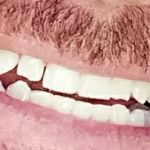Natural Treatments for Oral Thrush in Children - Effective Home Remedies
- 1 - Understanding Oral Thrush in Children
- 2 - Symptoms of Oral Thrush in Children
- 3 - Natural Home Remedies for Oral Thrush
- 4 - When to Seek Medical Help
- 5 - Preventing Oral Thrush in Children
1. Understanding Oral Thrush in Children
Oral thrush, a fungal infection caused by Candida yeast, is a common condition in children, especially in infants and toddlers. It can cause discomfort in the mouth, including white patches on the tongue, gums, and inside of the cheeks. While it is typically harmless, it can be distressing for both children and their parents. Understanding the causes and symptoms of thrush is crucial in seeking timely relief for your little one.
2. Symptoms of Oral Thrush in Children
Some of the most common symptoms of oral thrush in children include:
- White, cottage cheese-like patches on the tongue, gums, or the inside of the cheeks
- Redness or soreness in the mouth
- Difficulty feeding or swallowing in babies
- Irritability or fussiness in infants
- A dry mouth and cracks at the corners of the mouth
If you notice these symptoms, it’s important to consult with a healthcare professional for proper diagnosis and treatment advice.
3. Natural Home Remedies for Oral Thrush
There are several natural treatments that can help alleviate the discomfort of oral thrush in children. These remedies are gentle, easy to apply, and can be done at home:
- Probiotics: Introducing probiotics into your child’s diet can help restore the balance of good bacteria in the mouth and prevent the overgrowth of Candida yeast.
- Coconut Oil: Known for its antifungal properties, coconut oil can be swished in the mouth for a few minutes to help fight off the infection.
- Saltwater Rinse: A saltwater rinse can soothe irritation and help reduce the presence of yeast. Just mix a teaspoon of salt in warm water and have your child rinse their mouth several times a day.
- Garlic: Garlic has strong antifungal properties that can help in fighting oral thrush. It can be consumed raw or mixed with food.
- Breast Milk: For infants, applying a small amount of breast milk to the affected areas can provide relief due to its natural antibacterial and antifungal properties.
These remedies may help soothe the symptoms, but always consult with a healthcare provider to ensure they are suitable for your child.
4. When to Seek Medical Help
In most cases, oral thrush can be managed with home remedies. However, if the infection persists or worsens, it’s important to seek medical advice. Signs that you should consult a doctor include:
- If the thrush does not improve after a few days of treatment
- If your child has difficulty feeding or swallowing
- If the infection spreads beyond the mouth
- If your child has a weakened immune system or underlying health conditions
In some cases, your doctor may prescribe antifungal medications to help clear the infection more effectively.
5. Preventing Oral Thrush in Children
Preventing oral thrush in children involves maintaining good oral hygiene and avoiding factors that may promote yeast overgrowth. Here are some tips:
- Ensure proper cleaning of your child’s mouth, especially after feedings.
- For babies, sterilize pacifiers and bottles regularly to avoid contamination.
- Encourage your child to drink plenty of water and avoid sugary drinks that can feed yeast.
- Introduce a balanced diet with healthy foods that support immune health.
Taking these steps can help reduce the likelihood of oral thrush recurring in the future.
If you’re looking for more information on how to manage oral thrush or need effective treatments for your child, click here to explore our recommended products.







 Hamner Dental Group and Orthodontics4.0 (257 review)
Hamner Dental Group and Orthodontics4.0 (257 review) Southside Orthodontics - Your Colonial Heights and Chesterfield Orthodontist4.0 (274 review)
Southside Orthodontics - Your Colonial Heights and Chesterfield Orthodontist4.0 (274 review) Capitol Dental Center PLC5.0 (94 review)
Capitol Dental Center PLC5.0 (94 review) Baseline Dental Care | Dentist In Rialto4.0 (387 review)
Baseline Dental Care | Dentist In Rialto4.0 (387 review) Greenberg Dental & Orthodontics4.0 (1278 review)
Greenberg Dental & Orthodontics4.0 (1278 review) Steven J. Moravec, DDS, MS4.0 (189 review)
Steven J. Moravec, DDS, MS4.0 (189 review) The Importance of Oral Health Education During Pregnancy for a Healthy Pregnancy
The Importance of Oral Health Education During Pregnancy for a Healthy Pregnancy Best Tips for Brushing Your Teeth Properly for Healthy Gums: Essential Techniques for Oral Health
Best Tips for Brushing Your Teeth Properly for Healthy Gums: Essential Techniques for Oral Health Why Skipping Dental Checkups Can Lead to Bigger Oral Health Problems
Why Skipping Dental Checkups Can Lead to Bigger Oral Health Problems Advantages of Porcelain Dental Restorations
Advantages of Porcelain Dental Restorations How Can Diabetes Cause Tooth and Gum Problems? Preventing and Managing Oral Health Issues
How Can Diabetes Cause Tooth and Gum Problems? Preventing and Managing Oral Health Issues Healthy Habits for Promoting Good Oral Health and Hygiene: Tips for a Healthy Smile
Healthy Habits for Promoting Good Oral Health and Hygiene: Tips for a Healthy Smile